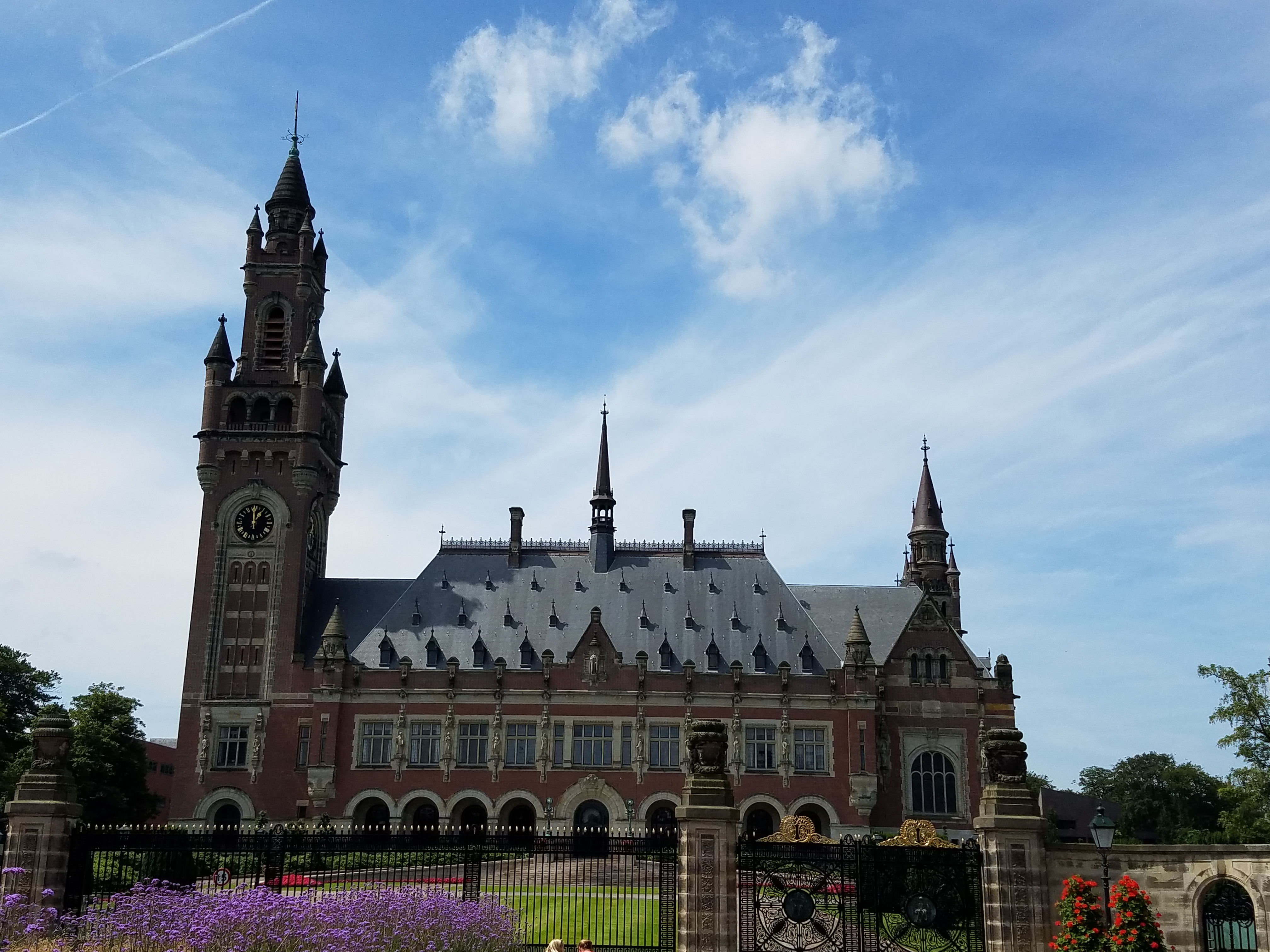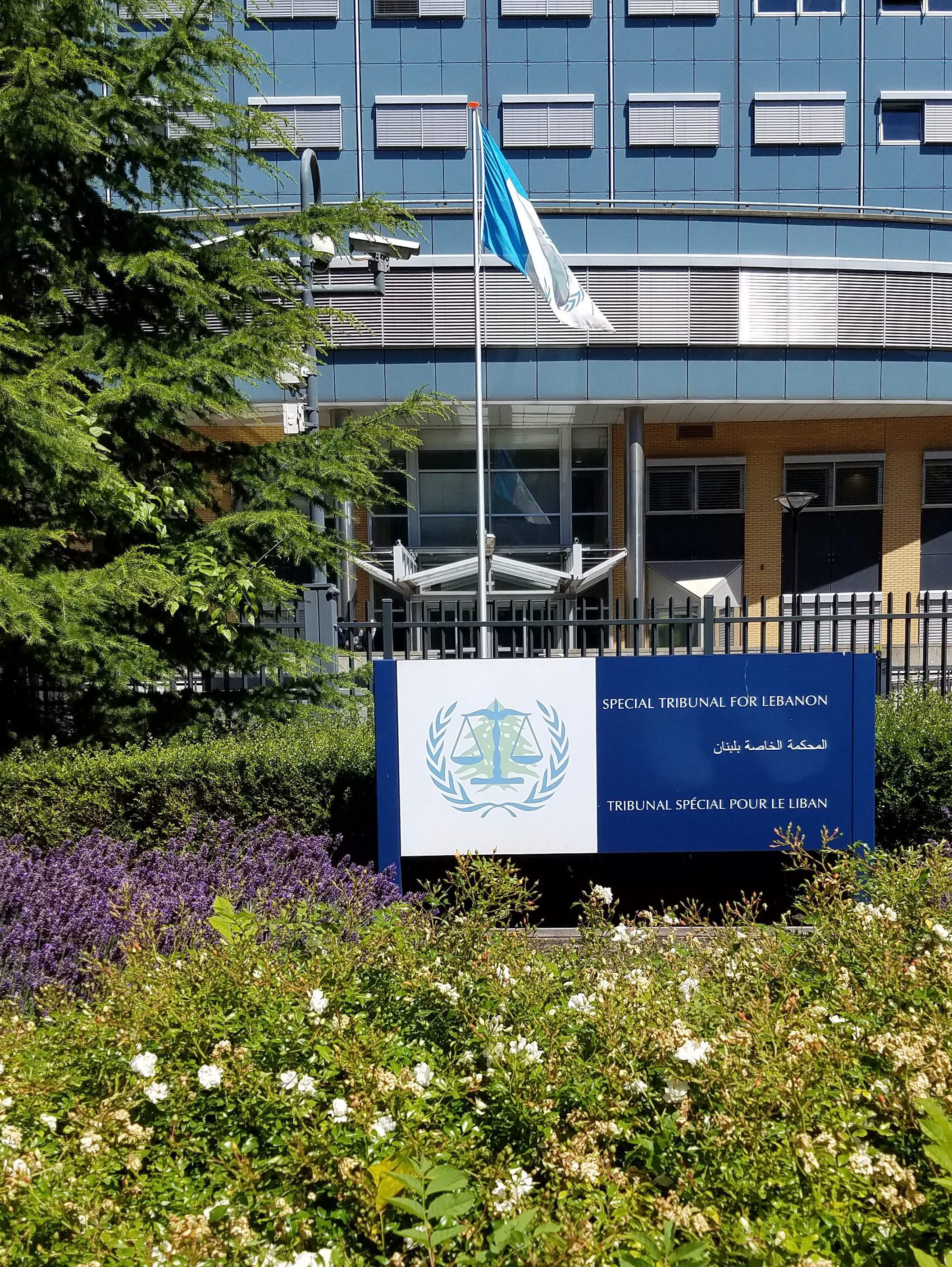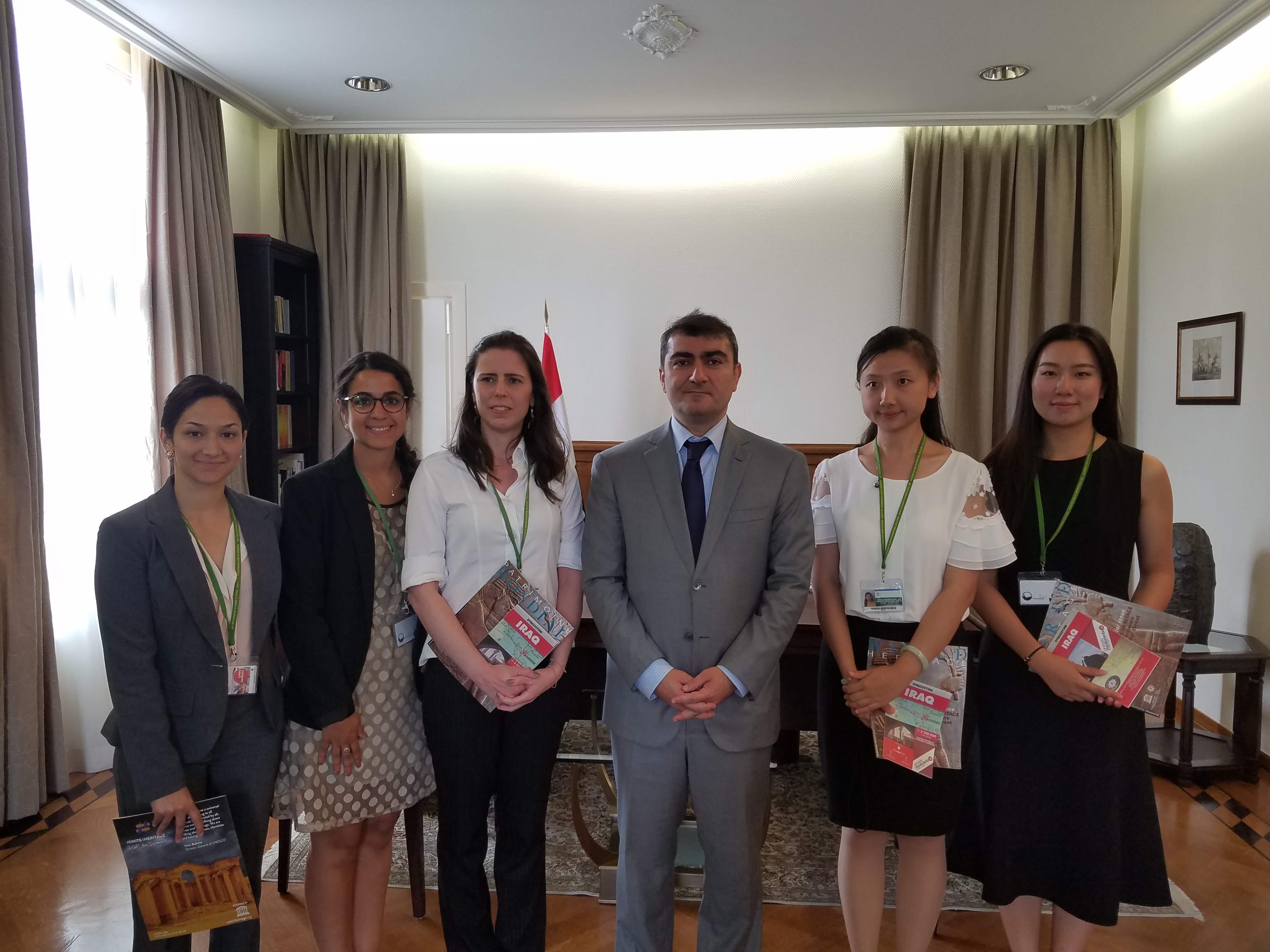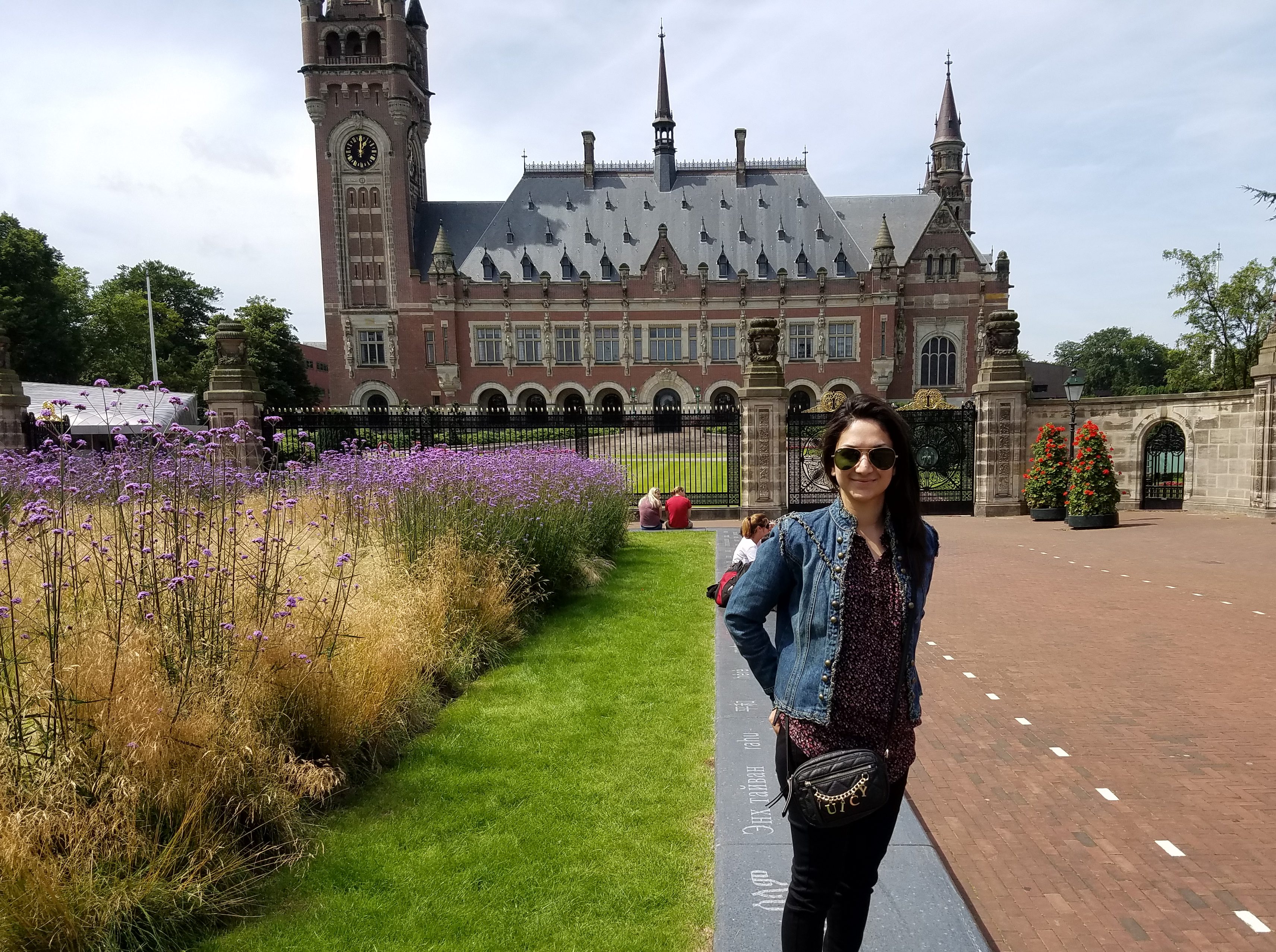By: Fizza Batool

The Peace Palace (Dutch: Vredespaleis) in The Hague, the Netherlands.
This past summer I was incredibly fortunate to travel to The Hague, the Netherlands to study public international law for three weeks due to the generosity of Washington University School of Law and the Dagen-Legomsky Hague Fellowship through the Whitney R. Harris World Law Institute. I will remember it as the highlight of my legal education.
The Peace Palace, known as Vredespaleis, is a stunning architectural building that holds the seat of the International Court of Justice, the principal judicial organ of the United Nations, as well as the Permanent Court of Arbitration. It is also home to The Hague Academy of International Law, a premier institution that has been giving summer courses to thousands of international lawyers since 1923. I’ve often heard that attending a course on private or public international law at The Hague Academy is a rite of passage for any student or young lawyer who wishes to enter this field.

The Special Tribunal for Lebanon in The Hague, the Netherlands. The tribunal also has an office in Beirut, Lebanon.
The three-week course on Public International Law begins in July and is attended by approximately three hundred students. Students may also choose to stay longer for the course on Private International Law which begins in August. The program is incredibly informative, engaging, and social. This summer the general course, entitled “International Law- Between Letter and Spirit” was delivered by His Excellency Mohamed Bennouna, a judge at the International Court of Justice. The Hague Academy also featured courses relating to international organizations and state reconstruction, human dignity and international law, international case law in the development of international law, the contemporary prohibition of torture, international law relating to islands, and shared responsibility in international law. Each lecturer also delivered a seminar once during the week for an extensive analysis of a particular subject and allowed students to interact accordingly.
In addition to courses and seminars, The Hague Academy arranges visits to international tribunals and embassies. I was pleased to visit the Special Tribunal for Lebanon because I had written about one of the cases before the Tribunal for my War Crimes and Tribunals Seminar at Washington University. I was able to attend a court hearing as well and view the interaction between the prosecutors, defense counsel, and judges.

Fizza Batool (far left), Hague Academy students and Ambassador of the Republic of Iraq to the Netherlands, His Excellency Saywan Barzani (center).
Perhaps one of the most enlightening trips during this program for me was a visit to the Iraqi Embassy. I had the privilege of meeting the Ambassador of the Republic of Iraq to the Netherlands, His Excellency Saywan Barzani. During our two-hour meeting, Ambassador Barzani discussed the history of Iraq and current issues facing the country. We talked about the threat of ISIS, the refugee crisis, and state reconstruction. He articulated that the source of division in Iraq is not rooted in religion, contrary to what the media tends to frame as a “Sunni v. Shiite” or even an “Islam v. West” conflict. Rather, he stated that much of the issue revolves around geopolitical and national interests. Furthermore, the overwhelming majority of victims killed as a result of terrorism and war in Iraq are and have been Muslims. Despite the numerous problems plaguing the region, Ambassador Barzani remained hopeful and optimistic for the future.
My conversation with Ambassador Barzani had a profound impact on me. I understand now more than ever the need for a strong international community, and I sense that this community will only get stronger and better in years to come because at The Hague Academy I met smart, kind, and brave people who came from all over the world with one shared vision: to make this world as peaceful as it can be for present and future generations. It was a mini-United Nations; eager to learn and ready to work.

Dagen-Legomsky Hague Academy Fellow Fizza Batool in front of the Peace Palace.
